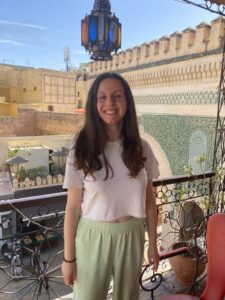what we celebrate and why: Yom Hashoah
by Sophie Orentlikher
How does one commemorate such a catastrophic and brutal event as the Shoah? Isn’t it self-evident that any attempt to construct a day of remembrance that does justice to what happened will simply fail? How can pain, shame, guilt and trauma be given an institutionalized space without using the space performatively?
There is no uniform answer to this question, neither in the Jewish nor other contexts: remembering and mourning the victims of the Nazis is not only done in the most diverse ways, but also takes place on different dates.
Each year on the 27th January, known as the International Day of Remembrance of the Victims of the Holocaust, which is set on the anniversary of the liberation of the Auschwitz concentration camp, we remember those who were declared enemies by Nazi ideology and were therefore murdered. However, some Orthodox Jews instead use the existing dates of national mourning, the 10th of Tevet and the 9th of Av, which commemorate inter alia the siege of Jerusalem and the destruction of the two temples, to also include mourning the memory of the 6 million Jews murdered during the Second World War. Both commemorations carry a common narrative, for example: Jews were victimized by the Nazis and eventually saved by the allies.
However, this is not the complete story, and ignores an important element in the narrative. While the history of the Jewish people has been marked by oppression, persecution and extermination, every case in which injustice has been brought to bear upon to Jews has been accompanied by heroic Jewish resistance.
Yom HaShoah ve HaGwura, the day of the Shoah and heroism, was unofficially established in Israel in 1951 and later legally in 1959. According to the Jewish calendar, it takes place on the 27th of Nissan, in a month that places the commemoration of the Shoah in a completely new context. Beginning with the Exodus from Egypt and thus the liberation of the Jewish people from their enslavement, which is celebrated on Passover (the 15th of Nissan), and followed by the anniversary of the Warsaw Ghetto Uprising, this period is marked by mourning, self-determination, pain and pride. The Warsaw Ghetto Uprising, which is considered one of the most significant events of resistance against oppression in modern history, played a decisive role in the selection of the date. In the largest ghetto established by the Nazis, 700 Jews organized themselves into armed groups and managed to resist the overwhelmingly superior German troops for almost a month, with smuggled or home-made weapons, while surrounded by a hostile Polish population. On 16 May 1943, the uprising was finally crushed by the Nazis, and most of the remaining inhabitants of the ghetto were deported to concentration camps or murdered on the spot.
It is therefore no coincidence that Yom HaShoah in Israel is officially opened at sunset of the previous day with a state ceremony at Warsaw Ghetto Square in the Yad Vashem Museum in Jerusalem. Survivors of the Shoah, as well as their descendants and political representatives, gather there to light six torches in memory of the six million Jews who were murdered by the Nazis and their accomplices. This is followed by 24 hours filled with ceremonies and services; television programmes are replaced by Shoah documentaries, testimonies and sentimental music; entertainment and recreational facilities are closed. The whole country also observes two minutes of silence – a siren sounds, bringing motorways to a standstill, people stop whatever they are doing and stand in silence, giving space to the memory of the victims and heroes of the Shoah.
Outside Israel, this day is also practiced in many Jewish communities.
For me personally, Yom Hashoah is an internal reflection to deal with the fate of my own family, as well as with that of my community. It is very inward looking, focused on mourning, but it also reminds me each time of the importance of being able to stand up for Jewish life and for Jewish lives today. I draw strength for this from all those who resisted, not only in their roles as fighters, but also for simply having survived and passed on their Judaism to the next generations.

I currently live in Vienna, Austria, where I’m about to finish my studies in educational science and social work. I’m an active member of the Jewish student union of Austria and since two years a participant of DialoguePerspectives.
